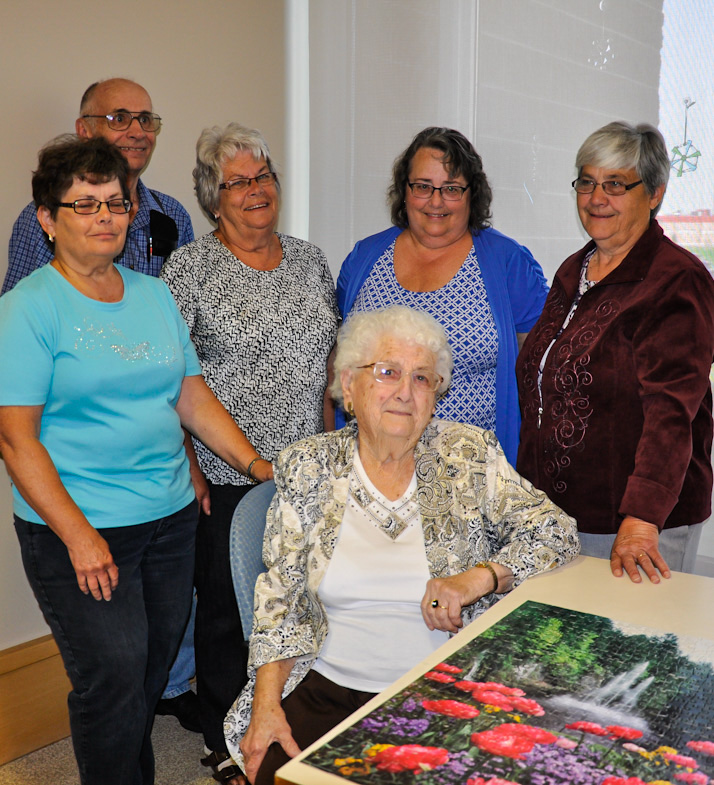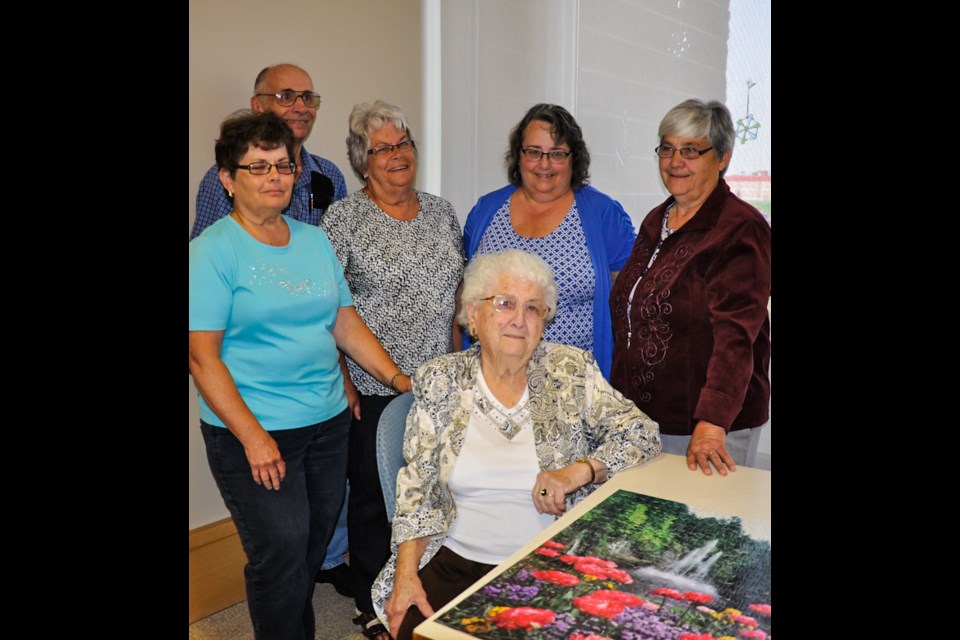
Active, quick-witted and still going strong, Margaret Pollard turns 100-years-old on August 1.
A come-and-go tea will be held that day at Grand Gardens North from 2 to 5 p.m.
The mother of six (five surviving) children, grand mother of 16 and great-grand mother of 16 attributes her long life to hard work, good food of meat and potatoes, and her faith.
The youngest of four children, Pollard grew up on a farm in the Chatham, Ontario area and is the last of her family’s generation.
On January 19, 1940, Pollard married her husband, Stanley.
When she married, Pollard received a handsome dowry from her parents which bought her wedding dress and hat, a set of dishes and set of towels.
“Where they got the $50, I have no idea,” she said. “That was a lot of money.”
Life, growing up then raising her children was hard work, she said.
“Those were bad years, war years.”
Essentials were grown on the family farm.
Sugar was rationed and luxuries such as tea was bartered for.
The couple and then three children moved to her parents 100-acre farm and worked it until it was sold.
The Pollard’s couldn’t find an affordable home with a school, water and a church.
A registered holstein cow was transported north, starting what became Sta-Ma farms.
The cow was boarded by Pollard’s sister, Dorothy, in Desbarats while looking for a place to live.
In 1952, the 100-acre Pollard farm located on Bruce Road, known today as Highway 17 East, between Desbarats and Bruce Mines was purchased over the phone.
A two-ton truck transported the five children Dick, Peter, Ann, Jane and Edith ages three to 11; livestock; and family belonging north.
The youngest, Susan, was born in Thessalon.
The majority of the family remains in Algoma today.
“It (Algoma) was a different way of farming,” she said. “There were no cash crops up here. It was hay and cattle.”
The Bruce Station Creamery was in operation, Pollard had an egg and cream route.
In 1962 the barn burned down.
Four years later, Dick and Doreen Pollard took over the dairy operation which was relocated to Desbarats and expanded.
Pollard contributed to the war effort, making quilts during the winter months as part of the Porlock Women’s Association, a community quilter’s group.
Pollard’s retired children shared countless memories of their hardworking mother.
“Our parents taught us to work hard and also how to play hard,” said Pollard’s daughter, Ann McHale said, adding that Sunday was also set aside for family gatherings.
Invented since she was a little girl: “microwave ovens and beautiful cars.”
When man landed on the moon: “I said it couldn’t be done, but they did.”
Time-savers her mother never had: electric stoves, refrigerator, vacuum, light rather than lamps, running water and flushed toilets.
Movies today are, “terrible,” and women today are, “pampered,” Pollard wrote.
The Pollards moved to the F. J. Davey Home 10 years ago.
Sadly, Stanley passed away shortly thereafter.
Pollard enjoys watching baseball and curling, and stays busy with jigsaw puzzles, knitting and crocheting.
She remains close to her family, talking with them regularly.
“I wish I lived closer, but this is home now,” she said welcoming the opportunity to be back in her kitchen.
